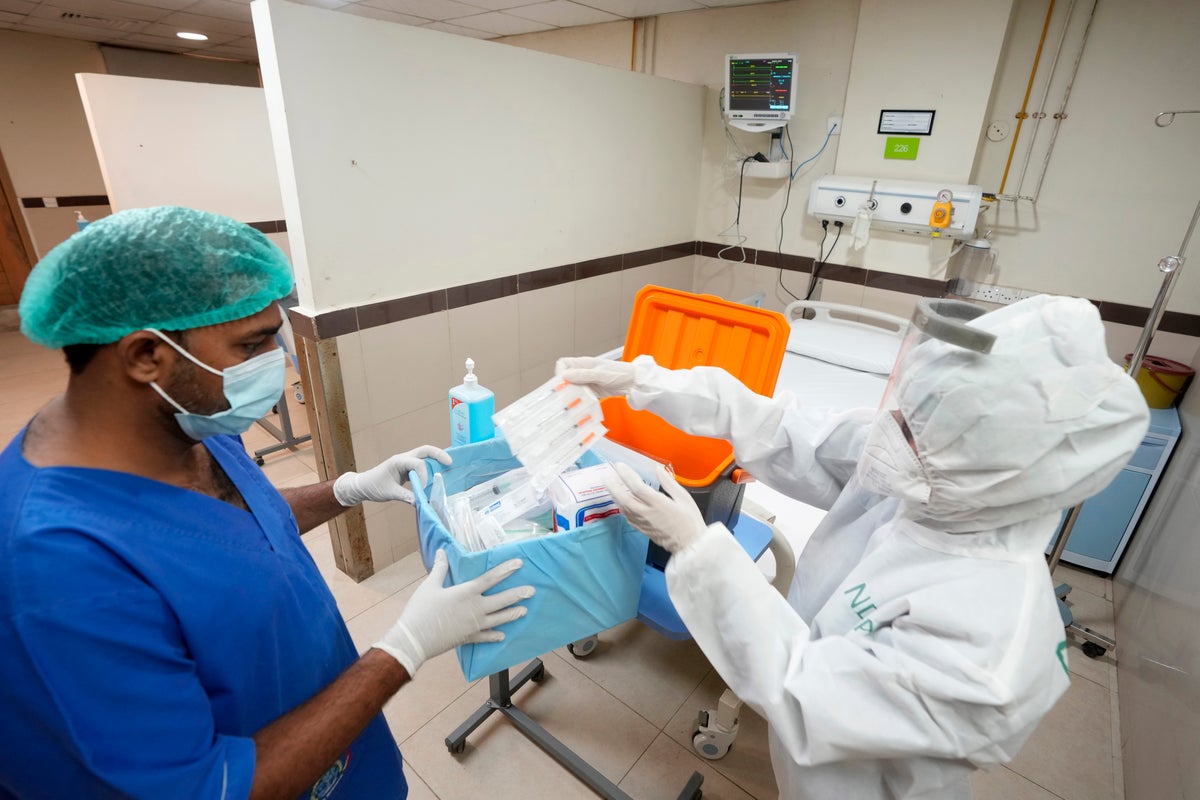A deadly new variant of the Mpox virus has spread through countries in Africa - and concerns are intensifying after Europe and Asia report their first cases. Over the past two years the UK has reported 186 cases of Mpox with no fatalities. Clade 2 Mpox, the less-deadly of the two major variants, has been present in the UK since 2022.
But African countries have seen a new, potentially more dangerous variant of the disease spreading rapidly as scientists scramble to get the disease under control . The Democratic Republic of Congo has faced the brunt of the new variant, known as Clade 1b, which scientists say is mutating “rapidly” and proving difficult to control. In 2024, 19,667 cases and 575 deaths were reported in the Congo, according to the Africa Centres for Disease Control and Prevention Epidemic Intelligence Report - marking around 90 percent of all cases in Africa.

The World Health Organisation declared a global health emergency on August 15, and have now called on member states to help fund a $135million battle plan to fight the spread of the virus. The outbreak “can be controlled and can be stopped”, Director-General Tedros Adhanom Ghebreyesus said, but this will require “approximately $135 million over the next six months for the acute phase of the outbreak”. Mpox belongs to the same virus family as smallpox, but produces milder symptoms including fever, chills and body aches.
Serious cases can lead to lesions on the face, hand, chest and genitals. The virus was first identified by scientists in 1958, when it was known as monkeypox after the outbreak of a “pox-like” disease in monkeys. Scientists later changed the name to Mpox for accuracy reasons, with experts suggesting the virus originated from rodents.
The UK government lists the symptoms as: A skin rash with blisters, spots or ulcers that can appear anywhere on your body (including your genitals); fever; headaches, backache, and muscle aches; joint pains; swollen glands; shivering (chills) and exhaustion. A rash will typically appear one to five days following a fever, often beginning on the face before spreading to other parts of the body. The vaccine currently available in the UK tackles the Clade 2 variant of Mpox - which spread through the UK in 2022-2023.
It is 70 to 85 percent effective if given to people before they receive the vaccine. The new strain of Mpox has spread to multiple countries in Africa including Burundi, Central African Republic, Rwanda, and Uganda. Scientists have said it is mutating more rapidly than was expected.
Dr. Dimie Ogoina of the Niger Delta University Hospital said experts “don’t understand the outbreak very well”. Sweden reported Europe’s first case of Clade 1b Mpox on August 15, while Thailand reported Asia’s first case on August 22.
Both of these cases were as a result of travellers from the affected countries - but no travel restrictions have been put in place yet by the UK government. There have not yet been any reports of the new strain in the UK. Earlier this month, deputy director of the UK Health Security Agency Dr Meera Chand said: “The risk to the UK population is currently considered low.
However, planning is under way to prepare for any cases that we might see in the UK. “This includes ensuring that clinicians are aware and able to recognise cases promptly, that rapid testing is available, and that protocols are developed for the safe clinical care of people who have the infection and the prevention of onward transmission.” The focus currently remains on retaining vigilance and controlling the potential thread, rather than imposing travel restrictions.
.


















